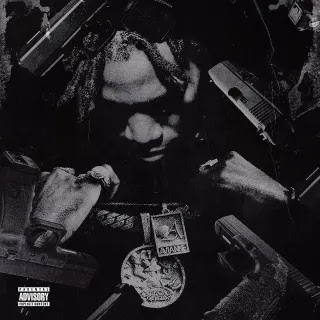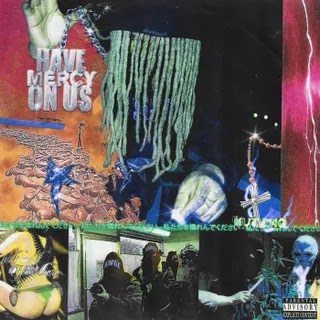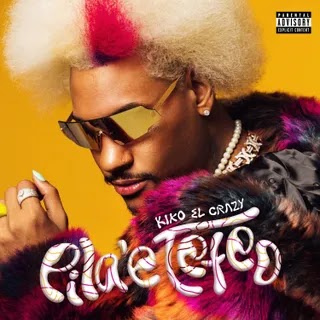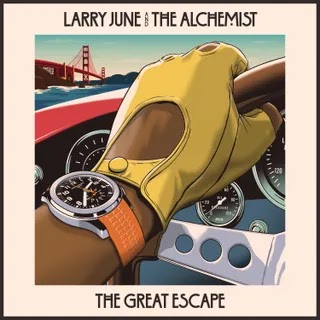The Memphis rap duo reunites for an impressive sequel that’s as natural and effortless as an old friendship.
Like any writing partnership or wrestling tag-team, rap duos are tacit strategic agreements as much as they are a genuine collaboration. An 8Ball & MJG or Method Man & Redman is once-in-a-generation; it can be hard not to focus exclusively on yourself in an industry that’s so often driven and defined by individualist hustle. When Young Dolph and Key Glock united for 2019’s Dum and Dummer—more of a rigorous sparring match than the goofball antics its titular nod to Harry & Lloyd might indicate—it could have just been a one-off affair, a notch in the belt of a trap veteran and a boost to the resumé of an upstart, but its sequel, Dum and Dummer 2, solidifies the Memphis rappers as one of the most in-sync alliances in the genre today.
Young Dolph cut his teeth during the peak of DatPiff and LiveMixtapes, DJ Holliday and Trap-A-Holics, when physical street mixtapes were still a somewhat substantial economy for Southern rappers—an affiliate of the 1017 universe, Dolph owed more to Gucci Mane than Three 6 Mafia or other mainstream Memphis artists. His persona is both dealer and consumer, a single-minded distributor of product and mover of weight who is also an unapologetic stoner, minus the drug-rug, bongwater-soaked corniness of a Wiz Khalifa. Dolph is slick, sarcastic, and charismatic, a consummate professional who could blow dense clouds but still keep a clear head, like Gordon Gekko if he got down with grass. Over time, he’s developed not just as a business executive but as a frequently heartfelt songwriter and social commentator, like on 2018’s “Black Queen,” a piano ballad about his mother.
On “Somethin’ Else,” Dolph compares his reign in Memphis to the rule of the controversial revolutionary and political theorist Muammar Qaddafi in Libya. Most famously the inspiration for the moniker of New York MC Tragedy Khadafi, he’s even something of a thought leader—when XXXTentacion died, Waka Flocka Flame posted a screenshot of their final text exchanges, which included Waka texting X a PDF of Qaddafi’s Mao-inspired The Green Book. Like so many revolutionaries of the Global South, Qaddafi was despised in the West and eventually deposed because he fought to build a nation that could support itself instead of being subject to an empire. It may seem a stretch, but the comparison isn’t entirely unearned; while pretty much every other rapper of Dolph’s stature and weight class is a vassal of the major label machine, the self-crowned King of Memphis runs his own Paper Route Empire on independent terms.
Dolph was shouldered with the responsibility of providing for his younger siblings as a teenager, his singular dedication to the game driven by the knowledge that others depended on him. That sense of family shows in Dolph’s relationship with Glock, who’s just a little over a decade his junior—the hook of “RAIN RAIN” feels like the now not-quite-young Dolph bestowing his wisdom. Their collaboration could have just been Dolph taking the new generation under his wing, but Glock isn’t just shadowing big brother at work. The duo has equal ownership in their company; both tapes are evenly distributed between duets and solo tracks. Dolph has more of a boisterous cartoonishness to his voice while Glock’s has a dry-ice edge, but the two effortlessly weave in and out of each other’s flows on tracks like “Buddy Love,” riffing and finishing each other’s sentences.
“Aspen” is a euphoric paean to bag-getting, with twinkling keys and organ swells accompanying Dolph’s reminisces of a luxurious vacation in the land of legalization. His ad-libs are boastful and hilarious but also informative—he gleefully shouts out “Aspen (Colorado)” and “Aston (Martin),” just in case you weren’t sure. Dolph has worked for the right to relax, but Key Glock is still knives-out and carving out a reputation, pledging allegiance to a cut-throat life on “In GLOCK we trust”: “Even way before Corona, we been masked up.” Glock and Dolph repeat the last word of lines on “Penguins” with a razor-sharp exactness, mimicking the driving drums that undergird the beats.
The production, largely handled by Paper Route Empire righthand man Bandplay, is tastefully decadent. Ethereal and angelic voices wait in the wings of “What u see is what u get,” and laser blasts appropriately attack the beat of the video game-themed “Cheat Code.” Bandplay’s beats are always sturdy, driven by slabs of bass and menacing piano loops, but he’s stylistically adept even if the foundations are often built from shared elements.
While the first Dum and Dummer drew from the Farrelly Brothers, this album’s cover looks to the brain-dead law-breaking of Beavis and Butt-Head as inspiration. Dolph & Glock fashion themselves in the image of pop culture dunces even if at the same time they’re poised, extravagant, and immaculate—there’s a casualness to their rapport and respective flows that never announces itself too much. For all their boasts and success, they’re still stoners stuck in the couch cushions, puff-puff-passing bars back and forth as easily as they share the blunt. Neither rapper bogarts their moment; Dolph is confident enough in his reign that he’s comfortable ceding some of his territory to a padawan, and Glock is secure enough in his own skillset to go toe-to-toe with someone whose music he likely grew up on. Smokers might be known for overstaying their welcome, but even at 20 tracks, you feel like you could hang out with Dolph and Glock even longer; Dum & Dummer 2 is as effortless as an old friendship.
















0 comments:
Post a Comment